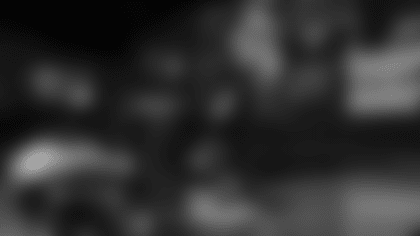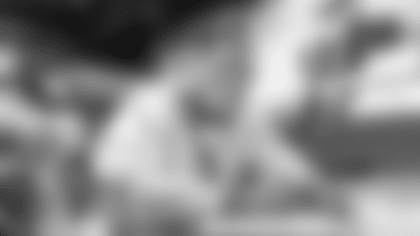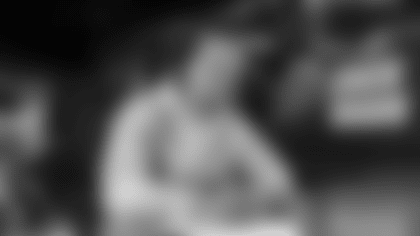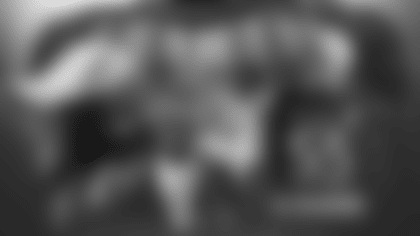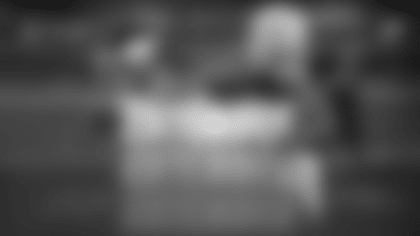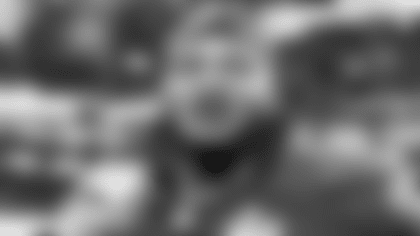You have watched the Eagles add to the offense in the first phase of the offseason, signing receivers Alshon Jeffery and Torrey Smith, bringing guard Chance Warmack on board and retaining guard/center Stefen Wisniewski. And the natural question, now that you are of course looking forward: What about the defense?
Ah, a fair question. The Eagles have some work to do on that side of the ball, at every level of the group, but they certainly have some building blocks with which to work. Defensive linemen Fletcher Cox and Brandon Graham are Pro Bowl-caliber players. Vinny Curry has been productive in the past and must step up in what could be an increased role. Jordan Hicks is on the rise at middle linebacker. Nigel Bradham played very well at the strongside position last season. Safeties Malcolm Jenkins and Rodney McLeod together give the Eagles the best tandem they've had in a decade.
Those are the key pieces. Seven of them. With four question spots and some depth behind them.
It's not the first time we've seen the Eagles in this position. And history provides a good blueprint to follow for success.
In 1999 – and yes, it's time to go back to the Andy Reid era, because the similarities are relevant in so many ways – the Eagles led the league in takeaways, but they were 29th in the NFL against the run and 29th in first downs allowed. The defense just wasn't good enough to carry and lift an offense that didn't have many weapons. The Eagles started the likes of Steve Martin, Greg Jefferson, and Mike Mamula along the defensive line, James Darling at linebacker, and Tim Hauck at safety.
This is not meant to be a lack of respect for those football players, but they clearly were not in the team's long-range plans. Jefferson's final season as an Eagle was 2000. Same with Darling. Ditto Mamula. Linebacker William Thomas, a terrific Eagle, signed with Oakland as a free agent after 1999. Hauck stayed with the Eagles through 2002, but his 15 starts in '99 represented a career best in his 13 NFL seasons.
The Eagles had plans to move on in 2000, as they rebuilt the defense. Hugh Douglas returned from a 1999 knee injury to star in 2000. Corey Simon was the team's first-round draft pick in 2000, No. 6 overall, and became an immediate starter, anchoring the run defense and providing push from his defensive tackle position. Brandon Whiting, another draft pick, was a solid, not spectacular, starter at defensive end. Barry Gardner matured into a starting linebacker, although not a long-term one in Philadelphia. Same with Damon Moore, who started next to Brian Dawkins in 2000 and had his promising career derailed by a serious knee injury.
Those 2000 Eagles reached the postseason and the defense was an important reason for the advancement, ranking fourth in points permitted and second in touchdown passes allowed. Coordinator Jim Johnson, a veteran in the NFL, was on to something as he built around the middle of the defense – Simon, middle linebacker Jeremiah Trotter, and safety Dawkins. Douglas was a force off the edge and cornerbacks Troy Vincent and Bobby Taylor were outstanding.
It was a one-year turnaround and that defense serves as a blueprint of sorts for this Eagles defense.
returns healthy after playing substantial snaps in 2016. We know that Curry didn't bust out after signing his high-profile contract last year, and combined with the release of Connor Barwin (who joined the Los Angeles Rams on Thursday) makes a pass-rushing presence to complement Graham a very important need. We know that Bennie Logan left in free agency, and that the Eagles anticipate Beau Allen stepping up and thriving with full-time reps.
We know that Mychal Kendricks' snap count has gone way down the last couple of seasons, a mystifying turn for a player who just a few years ago appeared to be a cornerstone of this defense. We know there isn't much proven depth in that linebacker room.
The needs are clear and extensive and challenging. But they are certainly not insurmountable.
Atlanta started four rookies on defense in 2016 and came within a blown fourth quarter of winning the Super Bowl. Did anyone expect much from that defense prior to the season?
To ask the question – What about the defense? – is fair and reasonable. The Eagles know they have to make the right calls to address the defense, whether it's combing through the remaining talent in free agency or making a trade or two, or hitting it right in the draft. The defense needs some key pieces.
It's been done before with the Eagles. All you have to do is look back to the offseason from 1999 to 2000, an era that bears a striking comparison to what the Eagles have in place now.








